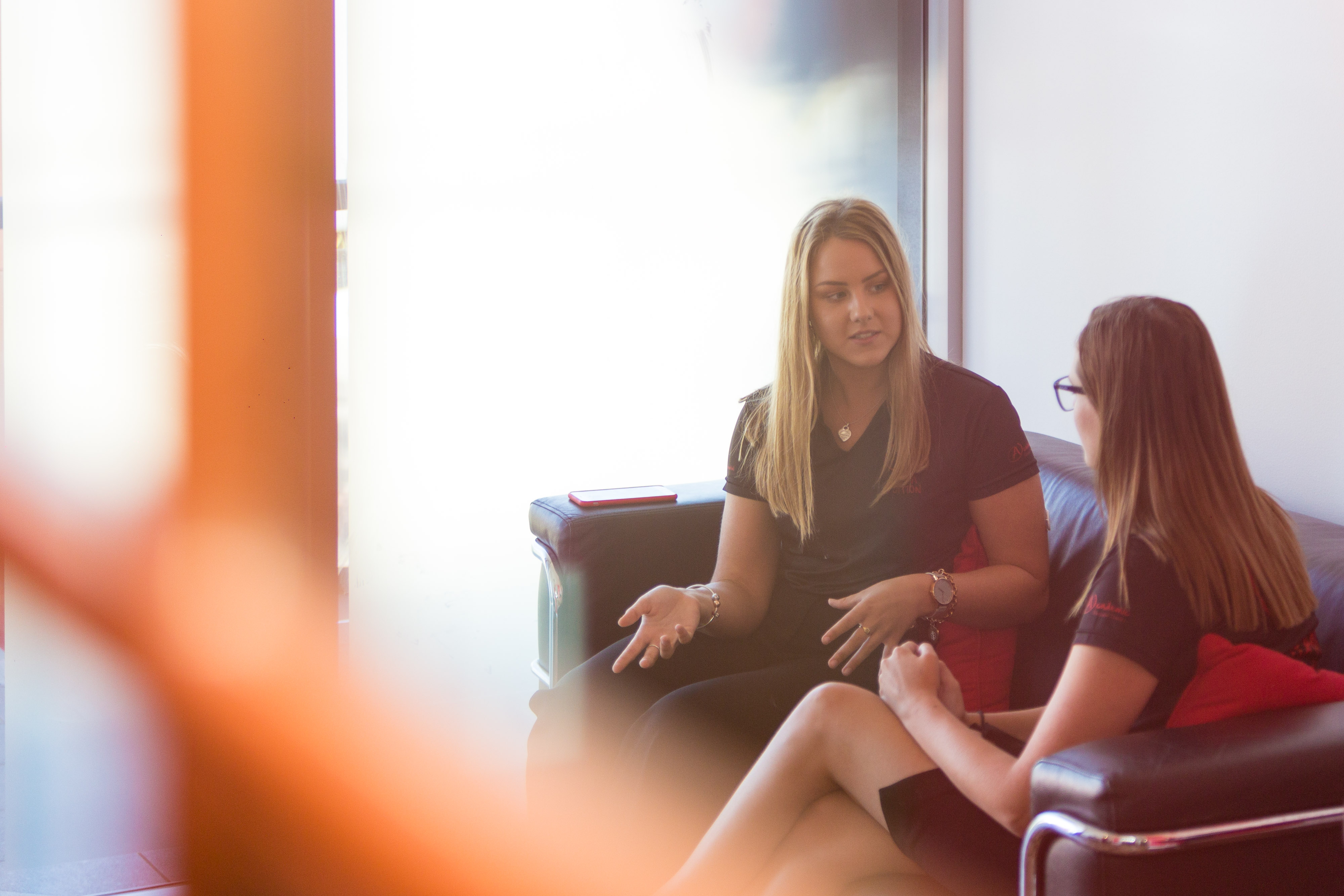Understanding the fundamentals of a particular subject is crucial to be able to comprehend extended topics and to be able to transition smoothly into different year levels.
Take Maths for example. All units are intrinsically interlinked. Without a basic understanding of algebra, how does one understand linear equations or be able to complete extended material taught in following year levels?
For student Zachary Green, this was exactly his dilemma. He lacked the fundamental skills that would allow him to excel on problem solving questions which prevented him from being able to achieve a grade above a D.
After failing his Year 10 Maths exam, Zac’s Mum Kim decided tutoring was the best option to help Zac with his struggles prior to his senior years.
“I googled ‘tutors’ like most people do, and there were quite a few to choose from. I did review searches and every review for A Team came up positively. I also liked what some of the reviews said. Apart from being academically strong, A Team had good interpersonal relationships with their students. Knowing Zachary as he is, being a little bit shy, I thought that this company would help.”
Zac was paired with our stellar Service Delivery Manager and experienced Academic Personal Trainer, Sam Adnett, to kick-start his transformation. After a few sessions with Zac, Sam was able to identify exactly what was stopping him from grasping those extra marks.
“When I first met Zac, I could see that he didn’t have any trouble understanding new mathematical concepts, but he kept getting things wrong because he lacked some fundamental skills. He could read a problem-solving question, understand what it was asking, but when it came to the working out, he was making errors.”
Sam jumped straight into filling the gaps in Zac’s knowledge and how to structure exam answers.
“We initially spent a lot of our time going over things like operations on fractions and solving for x; really getting to the basics of algebra.”
Once Zac started to revise and conquer these topics, Sam noticed a fast improvement.
“All of a sudden he started to get the answers that he struggled to answer before and apply his knowledge to almost every topic from then on. This really boosted his confidence and before I knew it, he was the one reminding me to give him homework!”
After a few week’s Kim also started to see changes in Zac and saw him adjust to the additional work.
“I think it was probably after the first couple of weeks when initially Zachary had to get used to the increased workload and the actual commitment of sitting down and doing 2 hours of maths and actually paying attention.”
Sam contributes a large portion of this rapid transformation to A Team’s Creating ‘A’ Student’s (CAS) program.
“Zachary stuck to the Creating ‘A’ Students Program religiously and it really worked for him. It taught him the habits of paying attention in class, taking good notes, and of course practice, practice, practice.”
By following the CAS program, Sam wasn’t just able to fill the gaps in Zac’s knowledge – she was also able to help Zac develop a growth mindset and open his eyes to the factors that students don’t consider when asking themselves why they’re failing at school; time management, assessment strategy, and effective note-taking during class.
Not only did this dream team stick to the CAS program and a personalised study plan for Zac, they also focused on ensuring Zac was retaining the information taught within sessions.
Reviewing the content and presenting it in different formats were just some ways in which Sam helped Zac remember the process to follow when answering exam questions.
Sam diversified how the content was delivered within each session and opted to show Zac educational YouTube videos which explained mathematical concepts in order to see which methods aligned with his visual learning language the best.
“I made many suggestions to broaden Zac’s study strategies to make it more interesting for him, such as exploring what YouTube has to offer education-wise.”
The pair also ensured that whilst Zac progressed forward each week, he was reviewing questions at the same time. Following sessions, Zac would independently choose a few random questions from chapters within his textbook that he’d already covered in class and re-do them for homework. This helped him to have a more developed understanding of the topics. Sam found that this strategy had an accumulative effect and helped Zac immensely during exam time.
“This strategy really helped Zac to understand the topics and retain the information, so when it came to exam time, there was no stressful revision because he already knew the content inside out!
What worked here, and allowed Zac to receive a B+ within one term of tutoring was distributed practice. Rather than trying to compartmentalise information into Zac’s brain right before his exam and simply cram the content, the extended process of reviewing notes throughout the term and learning at a steady place worked wonders for Zac and helping him achieve this magnificent result in the end.
Not only has Sam identified improvements in Zac’s academics, but also his beliefs in himself, his abilities and his confidence.
“Zac was quite shy when we first met. I remember he always quietly gave one worded answers to things and it took a lot of questioning to find out anything useful. Now, I can walk in and say hello and he greets me confidently, before sitting down and telling me everything about his week. Before I started sessions with Zac, he also didn’t really have much of a study routine. Now, he can address every aspect of his study routine without prompting. He knows exactly what he needs to do, and he just does it.”
Sam isn’t the only person to notice this shift in attitude with Zac himself reflecting on how tutoring has changed his perception.
“I feel more determined to do well than I did before.”
Kim couldn’t be happier with Zac’s transformation and the support provided by A Team.
“He doesn’t argue about maths. I used to try to help Zachary a lot but I’m not a teacher or a tutor. I would get frustrated and I think he got frustrated because I was getting frustrated. So, to take me out of the whole process and just have someone neutral, it just made both our lives a lot easier and our relationship. He now knows he has someone else that he can depend on to help him with his maths.”
The post Failing Year 11 student perfects problem-solving skills and receives a B+ appeared first on A Team Tuition.
from A Team Tuition https://ift.tt/2t4SRDk
via IFTTT








